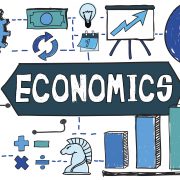The science of psychology is providing us with greater and greater understanding of the roles stories we tell ourselves play in shaping our opinions and feelings.
Some people tell themselves stories about wine.
Take how some individuals feel about wine, for example. An oenophile might be told that one bottle of wine is made by an accomplished winemaker from grapes grown in a favored vineyard in Bordeaux and harvested in an exceptionally good year. Its price is $150. The same oenophile is presented with a second wine and told that it is made from grapes that are nothing special, grown in a nondescript location, and sells for $10. The oenophile blind tastes the two wines side-by-side, and declares how much better the $150 Bordeaux tastes. It is subsequently revealed that the two wines are identical products, only their stories are different.
The oenophile had told himself a story about Bordeaux wines and vineyards and winemakers and high prices. He or she had pieced it together from magazine content and YouTube videos and conversations with peers and reading highly informed wine books. The story had become the oenophile’s dominant narrative for a life of wine appreciation, and determined what she found pleasurable and what she valued. Psychology recognizes this process as normal and valid. Stories provide meaning to our opinions and feelings.
We have a choice of stories to tell ourselves about economics.
Consider these two stories people might tell themselves about economic life.
Capitalism is a rigged economic system in which one class, the capitalists, exploits the working classes and the poor because capital generates both high incomes and expanded wealth, while labor is paid poor wages and excluded from capital returns, and the poor can’t escape the poverty trap. The inequality is getting worse, and there’s no hope for improvement until the government does something about it.
Capitalism is the economic system that’s driven by entrepreneurial innovators competing with each other to serve customers in better and better ways. It produces economic growth, innovation across multiple fronts and a rising standard of living for everyone. Everyone is free to try their best and see what they can achieve; there’s no limit to the growth and prosperity that can be achieved and shared.
The individual who internalizes the first story may feel negatively about economic life – frustrated, demotivated, perhaps angry. Maybe that person won’t try to succeed because they feel that the rigged system will prevent them, so why make the attempt. They may adopt anti-social behavior, and self-limiting work habits. They may feel low self-esteem, and be pessimistic about the future. They may join protest groups and sabotage commerce. Or they may simply drift, letting the world leave them behind, and their opportunities erode.
The individual whose internal narrative is infused with the second story may exhibit an entirely different profile. There can be purpose in their life, because they recognize that they can set goals and select their own means to attain them. They can cultivate their empathy for others’ needs, one of the most moral of all the possible applications of their capabilities, and use that skill in the service of others. They know that their individual contribution can be part of a greater pattern of progress and betterment. They can understand the benefits of learning and experimentation. They can see the positives in embracing and overcoming challenges. They can frame their efforts in the warm long-term view of both personal success and shared success – shared with family and community, and with their peers in a firm, or their partners in a venture.
Be sure to choose your story carefully.
Stories drive us. They shape our feelings and attitudes and motivate our behavior. They are a needed source of cogency and narrative. Choosing which story we believe is an individual act. The choice can make a big difference in our lives.
Will we lock ourselves into enjoying only $150 bottles of wine, and missing out on the simple pleasures of less expensive bottlings? Over a lifetime, that’s a huge opportunity cost. There are lots of other pleasures we might be missing out on if we choose to devote too much of our resources to expensive Bordeaux.
Much more importantly, of course, is the question of what story to choose to tell ourselves about economics. If we pick the wrong one, we condemn ourselves to a lifetime of feeling oppressed, conned, frustrated and powerless. If we pick the right one, we open up a lifetime of opportunity, learning, productivity, goal-achievement and rewarding collaboration and voluntary exchange with others.
It would be wise to use careful consideration of the long term when picking the story you choose to believe.
Photo by Gaelle Marcel on Unsplash





